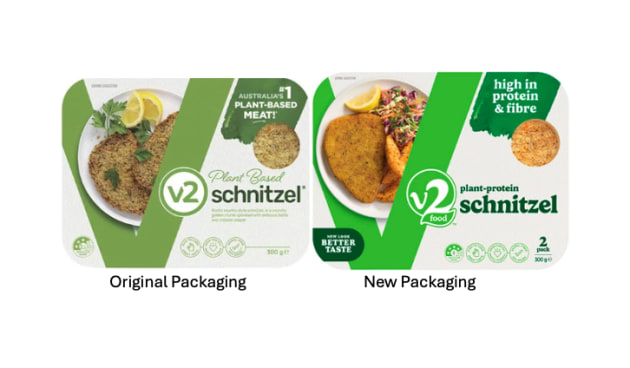A study by LaTrobe University researchers found German and American consumers found foods labelled plant-based were more appealing than products marked as vegan or vegetarian, but does the finding ring true for Australians?
A study by LaTrobe University researchers found German and American consumers found foods labelled plant-based were more appealing than products marked as vegan or vegetarian, but does the finding ring true for Australians?
The research, published in Appetite, looked at how a label stating a product was plant-based, vegan, or vegetarian affected a consumer’s appraisal of the product. The plant-based products – ranging from biscuits, chocolate and pasta to sausages and cheese – were presented to respondents labelled and unlabelled and their responses recorded on five attributes – healthy, tasty, environmentally friendly, ethical, and pure.
Lead researcher Dr Matthew Ruby said that both US and German participants showed a preference for foods labelled plant-based, rating them as tastier and purer, and indicating they were more likely to buy them over the same foods labelled vegan or vegetarian.
“While our US participants also believed the plant-based foods were healthier, more ethical, and more environmentally friendly than the other labels, our German participants did not make the same connection,” Ruby said.
“This is perhaps because vegetarian and vegan labelling is more widespread in Germany, on both healthier whole food products and heavily processed foods.”
Contrary to what Ruby and the researchers were expecting, neither consumers’ information-seeking tendencies or their pre-existing attitudes towards plant-based foods influenced the effects of the labels.
“Anticipated taste was a strong and consistent predictor of purchase likelihood for all labelled products, but the ethical and pure attributes also accounted for unique variance in this outcome variable,” the study found.
Food & Drink Business asked v2food GM ANZ, Nathaniel Tupou, if the findings rang true for its Australian customers. V2food has been at the forefront of plant-based meat in Australia, launching in 2019 and most recently launching a new business unit, Flexitarian Meal Solutions.
Tupou said the company completed a consumer research project in December examining the motivations and drivers for Australian consumers in relation to plant-based protein products.
“We captured and analysed more than 16,000 consumer decisions, which reaffirmed a lot of the insights we had around our potential new customers,” Tupou said.
“They're looking for products that taste delicious, are high in protein and healthy, that are convenient and easy to work into the meals they already consume. At v2 we've found when we've had success in reaching new customers it can usually be tracked to developments in these areas.
“New generation versions of existing products that are tastier, driving improved nutrition and higher health ratings in our products, or launching products that are familiar and easy to consume, are all areas that have allowed us to reach new customers.”
Tupou said v2’s research takes the research’s findings one step further. V2food’s vegan and vegetarian customers are loyal but represent a small number of customers compared to the number looking to reduce their meat consumption.
“Between these sets of customers, the motivations to buy are different but they do cross over when it comes to health and taste. As a result, we don’t label our products as vegan, or vegetarian and we’ve recently moved one step further labelling our products ‘plant-protein’ rather than ‘plant-based’.

“Getting the number one health benefit (protein) in the labelling of our product is an insight we believe helps all customers shortcut their decision making to one of the core benefits of our product,” Tupou said.







